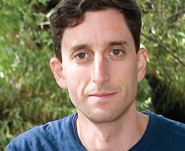Dr Ilan Kelman, a leading academic in climate and disaster studies (Reader at the University College London, England, and Professor II at the University of Agder) discussed disaster diplomacy at the Norwegian Institute for Public Health on the 24th of May, 2017, co-hosted by the UiO Centre for Global Health (CGH).
Natural hazards have the potential to be disastrous and devastating to large populated regions. The impact of a given disaster depends on vulnerability: factors that predispose populations to the destructive potential of the natural occurrences. Poor planning and governance, and lack of preparedness and risk reduction increase the catastrophic effects in disaster-prone locations. Governance, social cohesion and the capacity to rebuild, especially in regions with low resources also influence the response to- and recovery from disasters.
Conflict can further complicate preparedness and recovery from disasters. In areas of ongoing dispute, disasters are especially catastrophic. Political and financial resources are focused towards the conflict rather than preparedness, and low social cohesion threatens the chances of groups working together in order to both prepare for and mitigate the damage of disasters. Although there are many cases of ceasefires and temporary political alliances that have been forged to assist countries in strife, these peaceful relationships are commonly short-lived and do not have a large effect on committing to peace agreements.
Dr Kelman reviewed whether disasters create new diplomatic endeavours and whether they can influence peace or conflict. The short summary of current evidence is that disaster diplomacy does not happen and few positive long-term solutions to conflict arise from the destructive experience. Rather, there is potential for short-term diplomacy within a period of weeks or months, which also relies on a pre-existing intention for peace-building, such as cultural connections, trade links or other negotiations; however, in the long-term, non-disaster-related factors take over and countries return to their previous disputes and disagreements.
Nevertheless, ceasefires have been granted in the name of public health – to administer vaccines and provide water and sanitation to conflict zones. Countries have put aside their differences to provide assistance in events of large-scale disasters, when immediate assistance was needed.
With increased population density and persisting direful conditions such as poverty, malnutrition, oppression, discrimination, conflict, poor governance, and so forth, we can expect to witness regions affected by more severe and detrimental crises from natural hazards. In these situations the study of disaster diplomacy asks questions such as – are there ways in which humanitarian aid can act as a peace broker in conflict areas? Can disaster-related activities be harnessed to de-escalate political or social disputes? Under what conditions can disaster diplomacy occur? And can public health and global health influence disaster diplomacy?

Dr Ilan Kelman (Twitter @IlanKelman) is planning to deliver another seminar on the 5th of September, 2017 at the UiO Centre for Global Health (CGH). Event details will be announced soon.
Further reading on health, the climate and disaster diplomacy, please visit:
Reports
Lancet Commission on Health and Climate.
WHO - Health is a Bridge for Peace.
Websites
Lancet Countdown Indicators on Climate Change and Health
Books
Frederick C. Cuny (1983) – Disaster and Development
Kenneth Hewitt (1983) – Interpretation of Calamity (FULL TEXT)
Ilan Kelman (2011) – Disaster Diplomacy: How disasters affect peace and conflict
Ilan Kelman and Laura M Stough (2014) – Disability and Disaster
